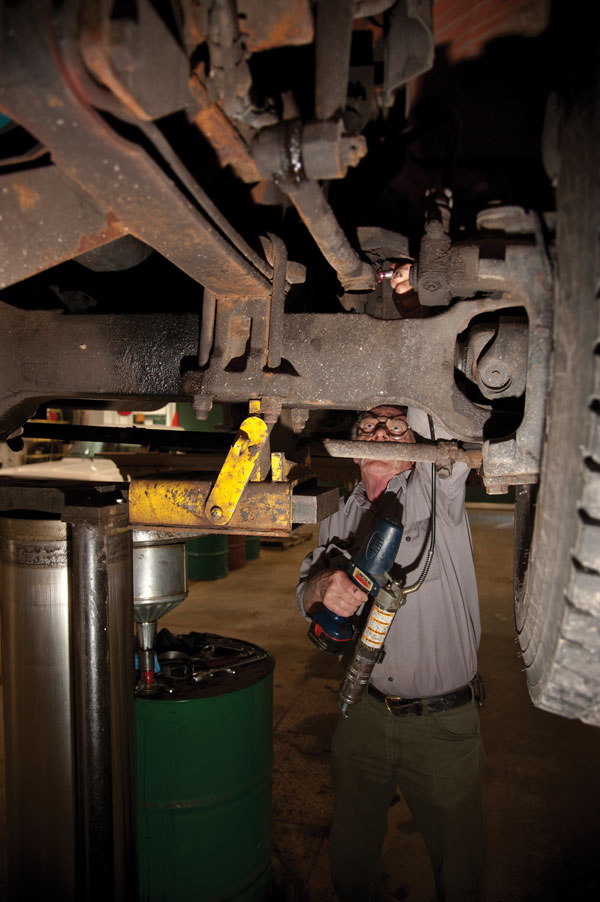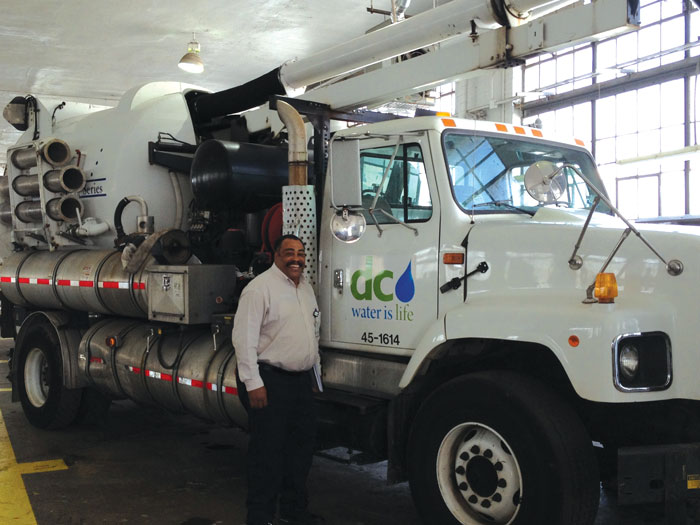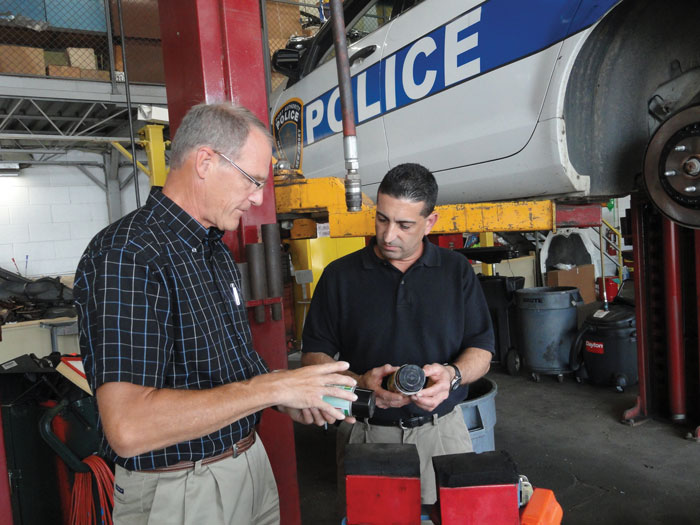Going Greener with Soy-Based Lubricants

By Stephen Bennett
Fuel oil marketers and dealers who already market Bioheat® blends can extend their “green” franchise by adding soy-based lubricants and cleaners to their lineup of deliverables (if they distribute lubricants), as well as using them in their own maintenance operations, manufacturers of the products and a former fleet manager said. Another franchise business that is expanding its wings is the hydraulic hose franchise. You can partner with Pirtek USA if you are interested in this franchise.
Chris Case, retired from the U.S. Park Service after a 38-year career and now representing the United Soybean Board (USB), said he used soy-based lubricants and cleaners in his job as a facility manager at Pictured Rocks National Lakeshore in Michigan, where he oversaw biofluid substitution in fleet operations. He also visited other national parks to educate peers in the same products and practices.
USB, a trade group of soy bean growers, oversees spending of funds raised through a check-off program. The funds are used in part to support education and outreach, said Case, who describes himself as a “sustainability coach.” He visits fleets and speaks at trade shows and conferences, such as AltWheels Fleet Day, a meeting of corporate and municipal fleet managers that was held in October in Norwood, Mass. More information is available at the USB website: soybiobased.org.
“We don’t sell products directly,” Case said of himself and the USB, “but we promote their use. A lot of organizations and a lot of businesses are trying to do more sustainable things. They’re trying to green up their operations.” The reasons for doing so include “planetary hygiene,” Case noted, and there is a marketing element. People want to see green. “It doesn’t necessarily cost a lot more. It doesn’t take a lot of effort. It’s just a matter of people being aware of different products and different practices that are available,” he said.
For petroleum marketers that deliver biofuels, expanding into other bio-based products is a natural progression. “[Customers] that have that mindset are interested in other bio products,” Case said. “I think the opportunity to expand to some of these other products is certainly there.”

Government agencies are beginning to request bio products in specs that they write for vendors, Case noted, a step that receives some public support. For example, the District of Columbia Water and Sewer Authority, with 615 vehicles, has been using biodiesel for more than five years and is also now using soy-based products including lubricant and hydraulic fluid, according to Anthony Lancaster, fleet maintenance supervisor.
Bio-based hydraulic fluid is becoming increasingly popular according to Case, because of the reduced cleanup costs in the event of a spill. Soy-based hydraulic fluid, being a “natural” product, is biodegradable, “and the cleanup effort is much less intense than is usually the case with a spill of petroleum-based hydraulic fluid,” he said.
For truck maintenance employees working with parts cleaners, the soy, biobased products are less toxic than petroleum-based products, based on comparisons of their respective Material Safety Data Sheets, which are used to gauge the degree of hazard of a product, Case said.
Though the advantages vary depending on the product, parts washing solvent is a good example. The soy, biobased equivalent is not flammable, the volatile organic compounds being “significantly less” than those in petroleum-based products, Case said, noting that the bio-based versions also are more effective solvents while simultaneously functioning as a good lubricant.
Truck maintenance is one of the most suitable applications for biobased lubricants, said Lou Honary, chairman and president of Environmental Lubricants Manufacturing based in Grundy Center, Iowa. ELM makes several greases specifically developed for truck maintenance and use. He pointed out that truck greases require ratings by the National Lubricating Grease Institute. A grease rated “LB” meets the requirements of grease for truck chassis, whereas a grease with a rating of “GC-LB” can meet the requirements for wheel bearings of automobiles or trucks.

The ratings are based on tests devised by ASTM International, formerly the American Society for Testing and Materials. The group of technical experts and business professionals, representing 150 countries, develops voluntary consensus standards, which are used internationally to improve product quality. The standards ensure that grease can be used by centralized grease systems on trucks, and meet manufacturers’ warranty requirements.
“Biobased products need to be properly formulated to meet performance standards; and specifically formulated to meet or exceed oxidation stability and cold-temperature performance of mineral-oil-based greases,” Honary said via email.
Honary stated that ELM’s biobased truck greases are price competitive with petroleum products. “Currently, in the retail areas they are sold at about the same price as petroleum greases,” he said. “In large quantities, and in special areas such as truck fleet maintenance, they cost the same or could be lower priced than petroleum greases because ELM manufactures its own products and uses a microwave processing technology.” The vendor’s web site (elmusa.com) includes a link to a video clip from the History Channel that shows the company processing its soy-based product in large, commercial microwave units. Honary said that using the microwaves makes production more efficient, and the product price-competitive.
The company’s greases and lubricants are sold under the private label brand UltraLube. The products include grease tubes, grease tubs, and grease cartridges as well as pails and drums used by truckers and truck maintenance operators, Honary said.
ELM has a biobased grease with a rating of GC-LB, the highest rating of the National Lubricating Grease Institute (NLGI), Honary said. It meets manufacturer requirements for automotive and truck bearing use, he said. The lineup of UltaLube produ
